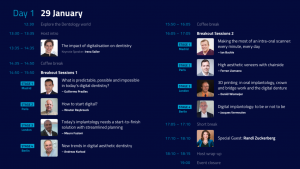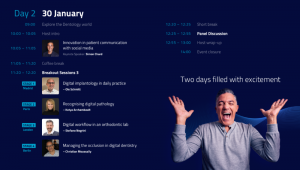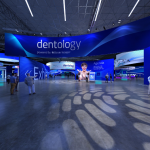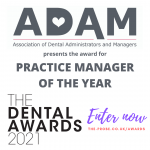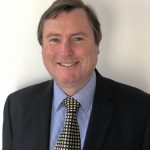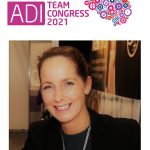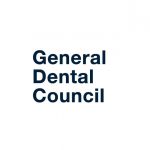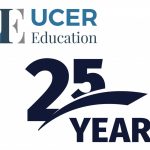The oral health impacts of COVID-19 already includes things like increased decay and disease as well as emergencies going unchecked due to problems with access. Now, dentists are reporting more cases of bruxism.[i] This isn’t just in the UK either, as towards the end of the year, several articles appeared from the US, indicating how practitioners there were recording the same. One Washington-based dentist was quoted as saying, “I’ve seen more patients with problems from grinding in the last few months than I have in the rest of my career”.[ii]
Chronic grinding and clenching will not only damage the teeth over time, but will also lead to problems such as pain in the jaw, headaches and migraines. Bruxism and stress have long been linked and, with the pandemic affecting mental health worldwide, it is no surprise that cases have risen over the past year. For context, the last time the UK was in recession, in 2010, dentists also reported a surge in tooth grinding, as people worried about their financial future.[iii]
More education, and the stress-sleep cycle
But we were a stressed society before COVID-19 and bruxism wasn’t considered rare during “better” times, either; with bruxist patients, you will have seen the impact it had on their quality of life.
Now we are seeing more cases, education needs to be a priority. “Stress” and “anxiety” come up over and over in any discussion about bruxism but grinding and clenching have also been linked to sleep disorders. One study found that people with “obstructive sleep apnoea syndrome” were at a high risk of night-time bruxism (“a stressful lifestyle” and “anxiety” were other major factors).[iv]
If a patient grinds solely at night, they might not attribute the pain in their jaw, or their frequent headaches, to bruxism. Chronic pain will always make someone feel low, but unexplained pain – especially now the value of feeling “well” has never been higher – can trigger stress and anxiety, both of which will hinder a good night’s sleep. This is why educating patients about bruxism, its causes and symptoms is so important; they might be oblivious to their habit but feeling its consequences and stuck in a cycle of pain, stress, poor sleep and more stress. Once diagnosed, there are simple, non-invasive solutions for nocturnal bruxism, such as a mouth guard. To be effective, though, a mouth guard must be fitted by a dental professional.
Education and thinking holistically
Daily jaw exercises can also be taught to perform at home. Other solutions include lifestyle changes to mitigate stress levels and manage any triggers. Learning to relax may seem hard at the moment but it is not impossible, and people should be encouraged to explore what works for them.
Promoting increased awareness of bruxism will also help patients acknowledge a day-time habit – if every evening, after a day of working from home/job hunting/yet another depressing news cycle, they find their jaw is painfully sore, they may have been clenching on and off for hours, without realising. But a tendency to grind and clench is something they will be able to control, with your support and guidance, which may include referral to their GP, or a mental health practitioner. The interlock of dental, general and mental health is being appreciated more; the events of this last year have, in some ways, helped people think holistically when it comes to how they take responsibility for their long-term wellbeing.
Oral health consultations, which you may be conducting virtually, are extremely useful if someone is presenting with what could be the early signs and symptoms of bruxism, allowing you to act before serious damage is done. However, if the bruxism is chronic and long term, the patient may require treatment to restore lost structure, for example, if a tooth has become fractured, or if there is tooth wear that inhibits function and/or aesthetics. With some of the composite bonding materials available on the market, these restorative treatments can be delivered conservatively, efficiently and economically, for both your patient and your practice. COLTENE has been leading the market in restorative materials for some time, with its range of no-nonsense composites, such as BRILLIANT™ EverGlow, a submicron hybrid composite which offers strength as well as beautiful aesthetics. There is also BRILLIANT™ COMPONEER, which comprise prefabricated, easy-to-process enamel shells for successful, stable restorative treatments, delivered chairside.
The repercussions on our mental health from the pandemic have been, and will continue to be huge, globally. With dentists seeing more cases of stress-related bruxism, education and swift intervention will prevent more and limit any existing damage. Patients should also know that if dental treatment to rehabilitate a tooth or teeth is required, this can be delivered ethically too. Although bruxism is not solely linked to stress, this is yet another example of how being in good oral health cannot be separated from being in general good physical health and maintaining mental wellbeing.
For more on COLTENE, visit www.coltene.com,
email info.uk@coltene.com or call 0800 254 5115.
[i] Bruxism: the impact of COVID-19 on the nation’s oral health. Dentistry Online, 16 September 2020. Link: https://www.dentistry.co.uk/2020/09/16/bruxism-impact-covid-oral-health/ (accessed September 2020).
[ii] Teeth grinding is on the rise and it may be due to pandemic anxiety. The Hill, 25 September 2020. Link: https://thehill.com/changing-america/well-being/prevention-cures/518217-teeth-grinding-is-on-the-rise-and-it-may-be-due (accessed September 2020).
[iii] Surge in teeth grinding is linked to stress of recession. Guardian, 28 February 2010. Link: https://www.theguardian.com/society/2010/feb/28/teeth-grinding-recession-linked-dentists (accessed September 2020).
[iv] Ohayon MM, Li KK, Guilleminault C. Risk factors for sleep bruxism in the general population. Chest. 2001 Jan 1; 119 (1): 53-61.
